Sunday, March 8 was the last time I was with my lover. I would embrace love into my body, the scent diffusing into my lungs and wrapping me like a shroud. An Uber ride waits for me on the streets of Abuja where my lover resides ready to leave for the train station for another two-hour ride to Kaduna where I reside. Touch – pushes up the oxytocin system in the brain and produces feelings of serenity and attachment. My heart and body were leaving the right place they ought to have remained. At that moment there was only one confirmed case of Covid-19 in Lagos. There was not so much to worry about; I would be able to see my lover in a couple of weeks.
*
Click hereThere are no thousands of men in kaftans, holding prayer mats, walking in groups and assembling and hastening towards the long minarets of mosques. There are no voices of crowds, bartering of traders, honking of tricycles, traffic jams; there is no smell of carbon monoxide distinct in the air. The streets are empty, mosques quiet, and this Friday feels illegal, like it has lost its identity. The city is no longer prayer-full. Bodies have disappeared, walled behind fences and gates.
Sada Malumfashi
Friday, 10 April there are 317 cases of Covid-19 in Nigeria with Kaduna and Abuja affected. I am in Kaduna, and there are no sounds of call to prayers by the muezzins from the mosques. There are no thousands of men in kaftans, holding prayer mats, walking in groups and assembling and hastening towards the long minarets of mosques. There are no voices of crowds, bartering of traders, honking of tricycles, traffic jams; there is no smell of carbon monoxide distinct in the air. The streets are empty, mosques quiet, and this Friday feels illegal, like it has lost its identity. The city is no longer prayer-full. Bodies have disappeared, walled behind fences and gates. I miss the piles of plastics and nylons and dirt and trash on the roadside after the Friday sales; I miss the food vendors, the sugarcane sellers, sharpening knives and scraping brown sticks to reveal white flesh; I miss the young women mugging men leaving the mosques with food wares – sweet desserts, alkaki, dakuwa, gullisuwa – for sale. I miss the sweetness of my lover.
This is the moment I begin to think of how to express my feelings to my lover separate from voices over a cellular device; separate from chats and emojis via Whatsapp and Instagram and shared tweets that were mutual to our current experiences and feelings; separate from ‘have you seen this funny Tik-Tok video’ ‘hilarious’ ‘I’ve been howling in laughter’ ‘so relatable’; separate from longing stares at each other on rectangular screens via video calls. I want to divulge how I wished I hadn’t detached my heart and body from where they ought to be a month ago.
So I set down to writing my lover daily incomprehensive emails from the day my raw feelings began gnawing at my confined body – Quarantine Day 1: I am losing my mind, my love.
*
Play generates the release of dopamine to provide you optimism. So we downloaded online scrabble games on our phones, and play with words throughout the day, sometimes spilling into another day. We argue, make jest and gloat. We are overtly competitive, and do not like to lose even to a lover. We learn new words, jo: origin, Scottish and can mean a term of endearment, a sweetheart or a lover, akin to dear or darling. The word expresses joy. My lover will call me My Jo. I will call my lover My Jo. Quarantine Day 7: When will this end? How do we continue?
*
Sunday, 26 April, there are 1315 confirmed cases of Covid-19 in Nigeria. There are ‘unexplained’ deaths in northern Nigeria’s biggest city, Kano, a two-hour drive from Kaduna. How is dying, the act of being in a state of finality, described as unexplained? There are only 70 confirmed Covid-19 cases in Kano, but local cemetery workers had already buried scores of people daily covered in a simple white shroud, buried six feet in earth according to Islamic rites. There is only one laboratory testing for the virus in Kano. Kano state has a population of nine million people. This laboratory closed for five days after one of its workers got infected.


A photograph by Sani Maikatanga on his Instagram account shows a graveyard in the Mazugal area of Kano during the burial of a university professor. In one photograph, the figure of the deceased is wrapped in a shroud, tied up and set out in a bamboo fitted open casket, as hundreds of men face the dead body, hands held to their chests, shoulders joined together in a customary prayer for the dead. The Imam leading the prayers wears a single-use facemask. Only a few others in the crowd wear any form of mask, observing no form of distancing. The other photograph shows the graveyard with a wall of trees forming a backdrop. The graves are all close together like rectangular mounds of earth with metal signs on each indicating the name of the deceased and the date of death in Hijri and Gregorian calendar dates, rusting and fading. Quarantine Day 16: I want you, body and soul.
Click here*
The lockdown in Kaduna is relaxed for two days to allow people to stock up on food and essentials. We begin to call the movement free days ‘market days’. On one such market day, I wear my mask and drive around town. Everywhere is bubbly again for this period; the city has been inhabited by life. It is like there had never been a lockdown before, and the coronavirus is taking a nap. Most people are wearing cloth made masks they lower to their chins when they want to talk to you – there is something about the need to communicate with the lips visible, moving. Some are wearing matching Ankara and facemask prints, in a fashion statement that even Covid-19 cannot mask. I drive into the next supermarket I find. The enormity of humans trouping in and out of the entrance like a packed stadium puts me in a sudden daze. I step back into my car, squirt hand sanitizer into my hand, breathe away my anxiety and drive back home. I call my lover and explain, my voice trapped within the air of my facemask: people are dying and people are shopping for chocolates and cakes. There is no market day for me.
*
On Twitter the Nigerian Center for Disease Control (NCDC) releases daily updates of Covid-19 cases in the country at around 23:00hrs:
@NCDCgov
195 new cases of #COVID19;
82-Lagos
30-Kano
…
…
…
3145 confirmed cases of #COVID19 in Nigeria
Deaths: 103
There are prayers and skepticism, there are fake news and conspiracy theories in replies to the tweet: We still don’t know anyone who knows anyone that knows anyone that has it. There is comedy: Lagos is swelling again like garri. Please wash your hands before you comment under this tweet. There are advertisements and business transactions as the tweet continues to generate tractions: Send me your account number. There are users trying to boost their followership: kindly follow me. I will follow back immediately. On ground there are mass deaths and undercounted fatalities. There are no names of those we lost, just numbers. Quarantine Day 27: I hate the mood swings that come with these times.
*
In a photograph by World Press Photo-winning Italian journalist Alessio Mamo about his experience of living in isolation in Sicily with his partner, Marta, who tested positive for coronavirus, the couple reclines on a sofa bed before watching a movie. They both have their masks strapped to their faces and the only light from the image is the brightness of their mobile phones.
Our two market days in Kaduna are now being utilized for ‘Corona Weddings’—a downscaled wedding ceremony in light of Covid-19. My cousin is amongst the beneficiaries of a corona wedding. A corona wedding is distinct for the absence of the cultural fanfare of a traditional Hausa wedding which tends to last almost a week. I watch the simple ceremony with six people in attendance at the bride’s house through Whatsapp statuses. It is short and hurried. The bride and the groom leave for their new life that not even daily death tolls could put a stop to – to a new life of living as partners in true isolation.
*
Thursday, May 14 there are 5200 confirmed cases of Covid-19 in Nigeria. It is Ramadan. I go hungry throughout the day and replenish my body at sunset. The muezzins are allowed to call prayers as reminders to break the fast, but mosques are not open for worship. The days have continued to drag without my lover. Any time I feel a cough, a tingling sensation in my throat, my anxiety throws tantrums and I remember every single moment I stepped out of my home in a sensory overload. The muezzin’s voice drops to a calm, he does not summon us to the bounties of praying in the mosque, he instructs us to pray where we are – in isolation, in anxiety, in grief. I bite into the date palm in my hands to break my fast and sip water from a bottle that runs the fear of the virus down my throat. The thirst has gone and the veins are quenched. Quarantine Day 35: Alhamdulillah. Praise be to Allah.

Sada Malumfashi is a writer living in Kaduna, Nigeria. His works of fiction have appeared in Transition Magazine and New Orleans Review’s African Literary Hustle Issue. His essays and creative nonfiction have appeared or are forthcoming in The Africa Report, Saraba Magazine, Enkare Review, This Is Africa and Music in Africa amongst others. He was among the participants in the Goethe Institute Nigeria-Cameroon Literary Exchange Program. He is an awardee of the Goethe Institute/Sylt Foundation Writing Residency through the Literary Exchange Program. He is interested in the intricacies of languages and works on translations bilingually in Hausa and English.






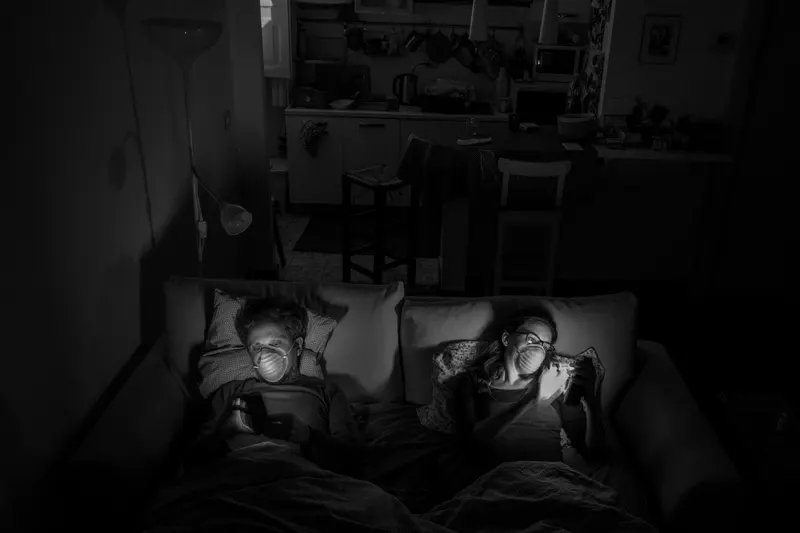
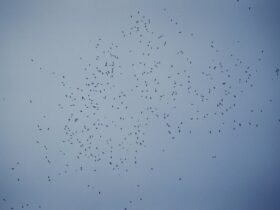
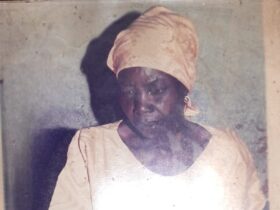
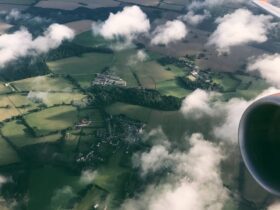
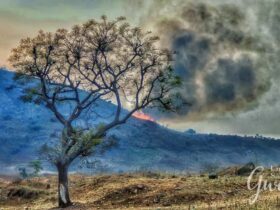


Leave a Reply